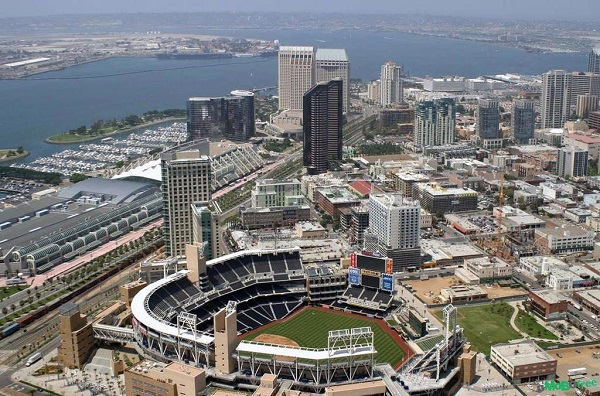Abuja Nigeria- Geography, Development, Map, & Population

Abuja Nigeria
Welcome to Abuja, Nigeria’s capital and a thriving center of culture, politics, and commerce. Abuja, located in the centre of the country, is a new city in comparison to Nigeria’s other major cities, having been the capital in 1991. It has since grown into a modern metropolis with amazing infrastructure, prominent landmarks, and a rich blend of traditions and modern living.
History:
Lagos was the capital before Abuja became the capital. However, due to overcrowding, insufficient infrastructure, and a desire for a more centrally placed capital, the decision was taken to build a new capital city. The site was carefully chosen to be in the heart of Nigeria, in order to foster unity among the country’s numerous ethnic and cultural groupings.
Climate and geography:
Abuja is located in the Federal Capital Territory (FCT) and is surrounded by magnificent rocky hills, rich flora, and picturesque vistas. The city has a tropical savanna climate with distinct wet and dry seasons. The dry season lasts from November to April, and the wet season lasts from May to October.
Geography:
Abuja, Nigeria’s capital city, is located in the country’s center area. It is located in the Federal Capital Territory (FCT) about 400 kilometers (250 miles) north of Lagos, the previous capital. The city is located at latitude 9.0579° North and longitude 7.4951° East.
The area surrounding Abuja is marked by rocky hills and undulating plains, lending the city its distinct topology. It is encircled by the picturesque slopes of Aso Rock, which has political and spiritual significance. Because of its proximity to the Nigerian Plateau, the city has a milder climate than the coastal districts.
Development:
The establishment of Abuja as the country’s capital began in the 1980s, when the Nigerian government chose to relocate the capital from Lagos to a more centrally placed city. The goal was to address difficulties such as overcrowding, insufficient infrastructure, and regional imbalances. The goal of the new capital was to build harmony among Nigeria’s numerous ethnic and cultural groups.
Abuja’s building began in the early 1980s, and it became the capital city on December 12, 1991. The city has grown significantly over the years, evolving from a modest administrative outpost to a contemporary metropolis. Wide highways, contemporary buildings, government institutions, embassies, shopping malls, and recreational facilities are all part of the city’s infrastructure.
Map:
Abuja is situated in the center of Nigeria. It is bounded to the north by Nasarawa State, to the west by Niger State, and to the south by Kogi State. Abuja is located in the Federal Capital enclave (FCT), which is an autonomous enclave directly managed by the federal government of Nigeria.
Population:
Abuja’s population was anticipated to be over 3 million individuals as of my most recent information update in September 2021. It is crucial to remember, however, that population estimates can vary quickly as a result of urbanization and migratory patterns. Abuja’s population is diverse, including Nigerians of all races and regions, as well as expats and foreign nationals who have come to work or do business in the city.
Because of its prominence as the political and administrative capital, as well as its economic prospects and modern facilities, the city’s population has grown significantly.
Attractions and landmarks:
Abuja has a plethora of sites and attractions that highlight the city’s cultural heritage and architectural splendor. Some must-see locations include:
Aso Rock: This gigantic rock structure is a municipal landmark with both political and spiritual significance.
National Mosque and National Church: These spectacular structures, which reflect Nigeria’s religious variety, are emblems of religious concord.
Zuma Rock: Zuma Rock, located just outside of town, is a gigantic rock with cultural and historical significance to the locals.
Abuja Millennium Tower: An observation tower with breathtaking views of the city and its surroundings.
Jabi Lake: A popular leisure area featuring a beautiful lake and a variety of water-based sports.
Cuisine and culture:
Abuja is a cultural melting pot, with residents from ethnic groups from all around Nigeria. The city’s art, music, dance, and festivals reflect this diversity. Visitors can sample a variety of cuisines, from local Nigerian meals to international pleasures, because the city has a bustling food scene.
Politics and the Economy:
Abuja is not only Nigeria’s political capital, but also a major economic hub. It houses a number of government agencies, foreign embassies, and corporate offices. Government activities, trade, banking, and real estate fuel the city’s economy.
Conclusion:
Abuja, Nigeria’s capital, reflects the country’s rich cultural legacy, political relevance, and economic vibrancy. Abuja, with its contemporary infrastructure, vibrant culture, and friendly atmosphere, offers a unique blend of history and modernity, making it an interesting destination for visitors as well as a thriving home for its diverse population.








